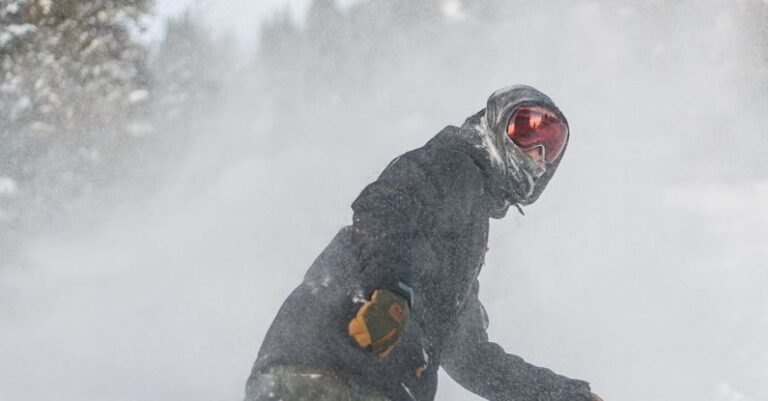
Snowboarding, a thrilling winter sport enjoyed by many, offers more than just an adrenaline rush and picturesque snow-covered landscapes. While the sport is often associated with speed and tricks, it also provides an excellent opportunity to enhance balance skills. The dynamic movements and challenges faced while snowboarding can lead to improved balance both on and off the slopes. Let’s explore how snowboarding can benefit your overall balance and why it may be a valuable activity to consider for enhancing this essential skill.
**Challenging Terrain**
One of the key aspects of snowboarding that contributes to improved balance is the varied and challenging terrain encountered on the slopes. Navigating through different types of snow conditions, steep inclines, and obstacles requires constant adjustments in weight distribution and body positioning. As a result, snowboarders develop a heightened sense of balance as they learn to adapt to the ever-changing environment. The continuous engagement of core muscles and lower body strength to maintain stability on uneven surfaces helps to enhance proprioception, which is the body’s awareness of its position in space.
**Core Strength and Stability**
Snowboarding primarily engages the core muscles, which play a vital role in maintaining balance and stability. The constant need to stabilize the body while carving turns, performing tricks, or riding through challenging terrain strengthens the core muscles over time. A strong core is essential for maintaining proper posture and alignment, reducing the risk of injuries, and improving overall balance. By regularly practicing snowboarding, individuals can develop a solid foundation of core strength that translates into better balance in everyday activities.
**Coordination and Timing**
Snowboarding requires precise coordination between different muscle groups and body movements to execute turns, jumps, and tricks effectively. The ability to coordinate these movements seamlessly not only enhances performance on the slopes but also improves overall balance. Developing a sense of timing and rhythm while snowboarding helps individuals become more attuned to their body’s movements and responses, leading to better balance control. The repetitive nature of practicing various snowboarding techniques further refines coordination skills, ultimately contributing to enhanced balance both on and off the snow.
**Balance in Motion**
Unlike static balance exercises that focus on maintaining stability while stationary, snowboarding challenges balance in a dynamic and fluid manner. The constant motion and shifting weight distribution required during snowboarding activities engage a wide range of muscles and joints, promoting better overall balance. By learning to adjust and adapt to the changing demands of the terrain, snowboarders develop a heightened sense of body awareness and control that can translate into improved balance in other activities.
**Mind-Body Connection**
Snowboarding is not just a physical activity but also a mental exercise that requires focus, concentration, and mindfulness. The connection between the mind and body plays a crucial role in achieving balance while snowboarding. By staying present in the moment, visualizing movements, and anticipating changes in the terrain, snowboarders can enhance their mind-body connection and improve balance performance. The mindfulness practiced during snowboarding can extend beyond the slopes, helping individuals cultivate a deeper awareness of their body and surroundings in daily life.
**Enhanced Proprioception**
Proprioception, the body’s ability to sense its position and movements in space, is a fundamental aspect of balance and coordination. Snowboarding challenges proprioceptive abilities by requiring quick adjustments in body positioning, weight shifting, and spatial awareness to maintain stability on the board. The sensory feedback received from the snow, board, and bindings helps individuals refine their proprioceptive skills, leading to improved balance and coordination over time. By honing proprioception through snowboarding, individuals can enhance their overall sense of balance and body control.
**Conclusion: Embracing the Balance Benefits of Snowboarding**
In conclusion, snowboarding offers a unique and exciting opportunity to improve balance through its dynamic movements, core-engaging exercises, coordination challenges, and mind-body connection. By embracing the physical and mental demands of snowboarding, individuals can enhance their balance skills on and off the slopes. Whether you are a seasoned snowboarder or a beginner looking to develop better balance, consider the benefits that snowboarding can offer in improving core strength, coordination, proprioception, and overall stability. So, hit the slopes, carve some turns, and experience the transformative effects of snowboarding on your balance skills.





